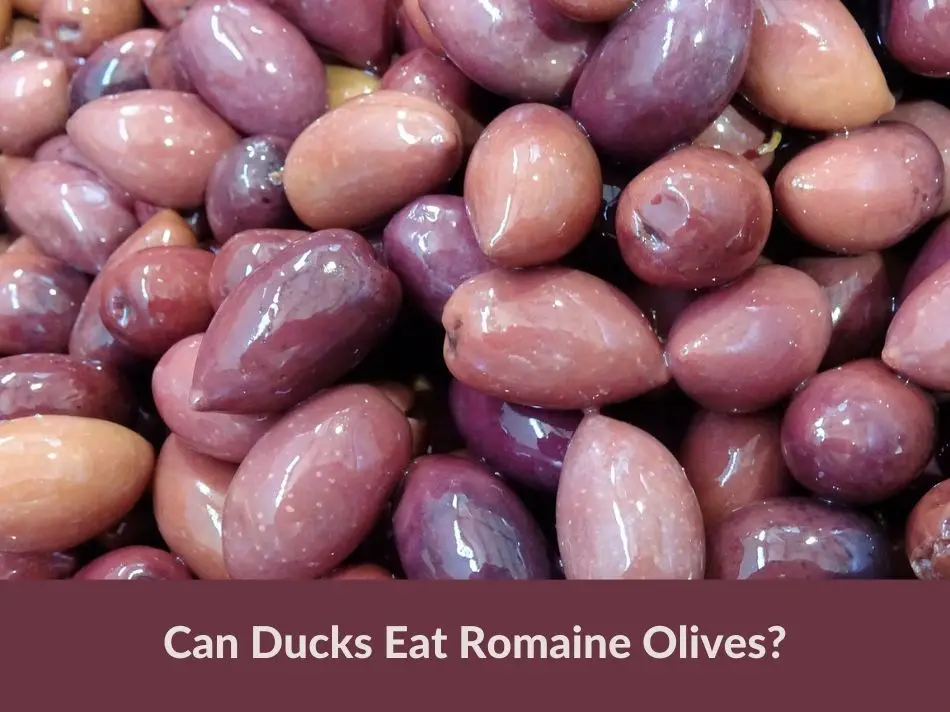In their natural habitats, ducks are omnivores. They usually feast on a range of foods, from tiny aquatic plants and insects to small fish. Their diet can be diverse, consisting of grains, greens, and even some small invertebrates. But, can ducks eat olives?
Yes, ducks can eat olives. However, olives, especially those preserved in salt brine, can be high in sodium, which isn’t the best for ducks in large amounts. Always ensure that olives given to ducks are thoroughly rinsed to remove excess salt.
In this article, we explore the dietary curiosities of ducks, specifically focusing on olives. We’ll delve into their natural eating habits, the pros and cons of olives as a treat, and guidance for both dedicated caretakers and casual park visitors.
How Often Can I Feed My Ducks Olives?
Treat olives as occasional treats. While they can enjoy the unique taste and texture, olives shouldn’t be feed more than once a week max. The high amount of salt in them can be detrimental to their health if over consumed.
Can Ducklings Eat Olives?
For our tiny feathered ducklings, it’s best to hold off on the olives. Ducklings have specific dietary needs to ensure proper growth, and olives don’t offer the required nutrients. Stick to specially formulated duckling feed for these little ones.
Olives Nutritional Value
Below is the nutritional value of 100 grams of olives.
- Calories: 115
- Protein: 0.8 g
- Fat: 10.7 g
- Carbohydrates: 6.3 g
- Dietary Fiber: 3.2 g
It also contains several vitamins and minerals as listed below.
- Vitamin E
- Iron
- Copper
- Calcium
- Sodium
Are Olives Healthy for Ducks?
Olives contain several vitamins and minerals beneficial for ducks when given in moderation. They offer a source of Vitamin E, which is good for feather health, and other beneficial compounds. However, due to their salt content, they should be given in moderation. Overfeeding olives or any salty foods can lead to salt poisoning in ducks.
- Vitamin E: Ducks need Vitamin E for shiny feathers and healthy skin. It acts as an antioxidant, protecting their cells. Without it, they could suffer from muscle problems, affecting their movement.
- Iron: Iron gives ducks energy. It helps produce hemoglobin to transport oxygen. Ducks lacking iron might find themselves often tired or out of breath.
- Copper: Copper is a little-known secret for ducks. It helps make red blood cells and keeps nerves, the immune system, and bones strong. A duck low on copper could face growth and bone issues.
- Calcium: Every laying duck swears by calcium. It’s vital for strong eggshells and robust bones. Plus, it’s crucial for their beaks and nerves. A well-calciumed duck lays sturdy eggs and walks with confidence.
- Sodium: Ducks need sodium, but not too much! It balances their fluids and ensures their nerves and muscles work right. But remember, too much can be harmful.
How To Feed Olives To Ducks
When feeding ducks olives, follow these steps for a happy and healthy ducky experience:
- Choose Unsalted Olives: If possible, always opt for olives without added salt.
- Rinse Thoroughly: Wash off any brine or additives to minimize sodium intake.
- Chop Them Up: Cut the olives into smaller, manageable pieces to prevent choking.
- Serve Sparingly: Remember, olives are a treat, not a regular meal. Offer them in limited quantities.
- Always Provide Fresh Water: Ducks should always have access to fresh water, especially when eating salty treats, to help them digest and stay hydrated.
More Vegetables Ducks Can Eat
Ducks have a diverse palate and can enjoy various vegetables in moderation. These veggies not only offer them delightful flavors but also a plethora of essential nutrients. Below are some more vegetables ducks can eat.
Conclusion
Ducks bring joy to many, whether you’re a full-time caretaker or a visitor at the local park. While it can be tempting to share our snacks with these affable birds, it’s essential to know what’s safe. Olives, in moderation and properly prepared, can be a fun treat.
Disclaimer: The information in this article is for informational purposes only. I'm not an expert or a veterinarian.


